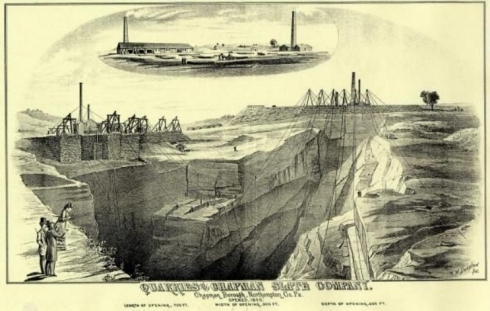
 |
||||||||||
| December 13th | William Chapman (Birth, 1816) |
 |
|
William Chapman (1816 – 1903), was a Cornishman born near the battlefield of Waterloo and the only one who had a town in America named after him. Chapman’s, St. Teath – born father, also William, worked in the Delabole Slate Quarry owned by Thomas Avery who was commissioned to raise a force to fight at Waterloo. William Chapman the Elder was a Lieutenant in the company of ninety men and was badly wounded in the battle. His wife, Elizabeth, being one of thousands of camp followers at Waterloo, nursed him back to health and gave birth to William. The family returned to Delabole and Chapman started working in the quarry at the age of seven. As a young adult, he moved to work, initially, in Devon and then to the slate quarries of Wales, where he remained for seven years, saving enough money to enable his emigration to America and he arrived in Easton, Pennsylvania (1842) at the age of twenty six. After exploring the slate fields, he leased land, which he later purchased, and started ‘The Chapman Slate Company’. He married Emily Carry, originally from South Carolina but educated in Baltimore, Maryland and they had four sons and seven daughters At its peak, the ‘The Chapman Slate Company’ produced one million square feet of slate a year employing skilled workers from Cornwall & Devon, North Wales and Italy. The high quality of the product led to the slate being used, and remaining, on the roofs of the New York Metropolitan Museum of Art, the Philadelphia Academy of Fine Arts as well as on the State Capitol buildings of Albany, New York State and Hartford, Connecticut. Chapman was a classic company owner of those times, building a town almost completely for his employees who bought their goods at the company owned store.
|